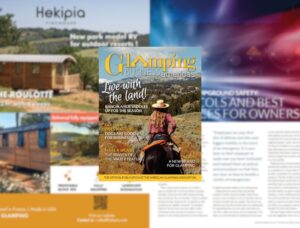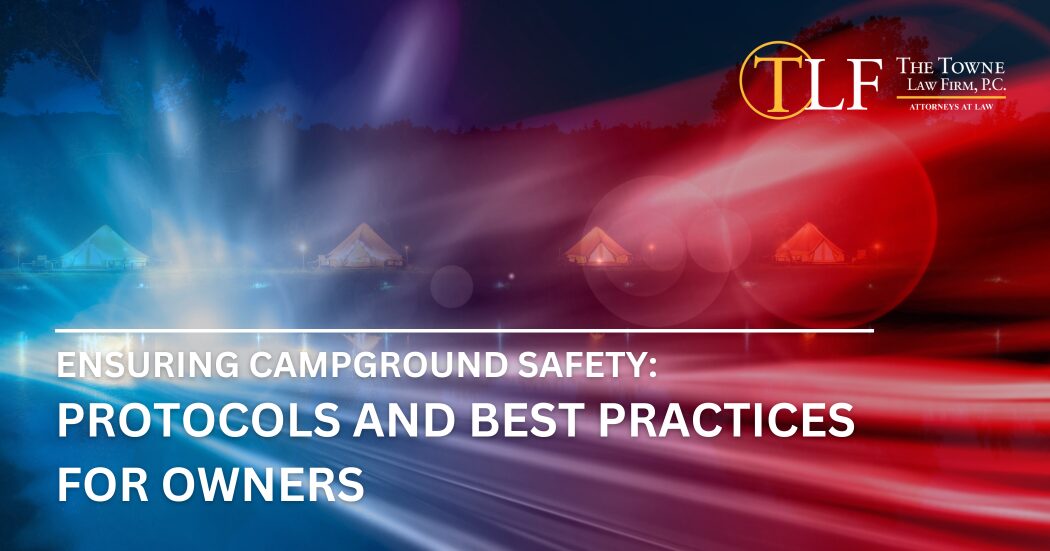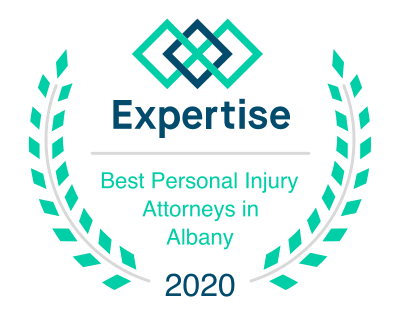Ensuring Campground Safety: Protocols And Best Practices For Owners
Apr 18, 2024ALBANY, NY | In recent years, with the expansion of the outdoor hospitality industry, there’s been a rise in weather-related disasters and other unfortunate events. This has prompted owners to reevaluate security measures, protocols, and liability concerns.
Although not generally a positive topic, the impact it has had on the industry is actually a positive one as it is better to be proactive in this case than reactive as you will feel better equipped to handle whatever challenges arise if you have created a plan and a procedure beforehand. What kind of incidents am I referring to? As a non-inclusive list: child adductions; active shooter; fire; weather events; and even extreme injuries to guests.
This is not an exact science, nor is their a “get out of jail free” card if you follow a certain checklist, all we can do is plan ahead and hope that, should we rely on that plan, it both provides the appropriate response for our guests as well as lessens our liability. However, it’s all about balance! Do too much and you might create unnecessary fear among your guests or put a damper on the whole experience, do too little and it might have been better to do nothing at all.
Gated parks are one of the many things property owners should consider. Restricting access to your property is one of the best ways to protect yourself and your guests. Yes, there is an upfront cost, but the rewards here are substantial. By regulating who is in your park and when you can, first, make sure there are no trespassers. This helps you economically by making sure everyone in your park has paid to be there, it also helps with liability as everyone who is in your park would then be covered under your insurance as a registered guest. Lastly, not only does it provide the illusion of safety to your guests, but also does help keep out unwanted and dangerous individuals, the harder access is, the less likely you will be a target over another venue which may be more accessible.
Keeping track of license plates might seem a burdensome addition but can easily be collected as a question on a reservation. This allows another mechanism for tracking who is on your property. This list, if able to be turned over to law enforcement would allow them to quickly and effectively run down the vehicles who might be involved in a child abduction (think about the information you get in amber alert), stolen vehicles, or even missing persons who went out for a drive and did not come back. This information helps as a quick overview of the people who might be within your property and law enforcement can benefit from this information.
Perhaps it goes without saying but all guests must be registered. This is for a couple of reasons. One, you should know who is on your park. You have a duty to provide a safe environment for your guests and if you have knowledge of someone being on your property who is unsafe for a variety of reasons, you must do something. In the event of an emergency, be it an evacuation due a weather related incident, an active shooter, or some other event, law enforcement will want to know what people were at risk, who was involved, and who they should still be looking for. Lastly, your insurance company will want to know who was authorized to be on the property when discerning coverage for certain situations. This is a low effort way to provide yourself, your guests, and your law enforcement with peace of mind. Streamline your reservation process for both short-term and long-term guests to efficiently collect the information for as many people staying on your property as possible, not just the person who booked the reservation. Make sure all guests stop to register for the time frame they are visiting the reservation holder, limit their access so they are forced to come register. Note that although you will now have all of this information readily available, this is not information to be shared with the public, other guests, or outside of an emergency situation or in response to lawsuit. Such sharing of information can instead open you up to other lawsuits if shared without permission and/or randomly to other individuals. Make sure your employees and agents are well aware of who is to have access to this information and when.
Background checks can be an additional tool to vet those individuals spending time in your park. Some people use them for employees, some people use them for only long-term guests; some people use them even more frequently than that. Any of those options would provide additional protection and validation over the individuals in your park. Make sure however, that if you pick one of these groups, that you are background checking all people in that particular group, getting the required permissions to run the background check and are handling the results in accordance with the law.
Employees are your first line of defense and also your biggest liability in the event of an emergency. It is your duty as their employer to make sure you have instituted and trained them on polices and procedures so that they are clear on how to handle a variety of emergencies. Such plans should include a point person, a list of actionable steps, where supplies to assist would be kept, what emergency or law enforcement personnel should be notified, how quickly it should be done and even include a record keeping and debriefing period after. This can be one plan or multiples, my suggestion would be to pull out specific types of events as the protocol can differ. I would have (1) an active shooter plan; (2) a guest injury plan for minor and major injuries; (3) a weather-related plan (flood, tornado, hurricane); and (4) a plan for other things that might need law enforcement generally (domestic violence, stolen property, etc.). It might feel tedious to create such plans, but after their initial creation they would only require limited updating in future years. Such, updating would likely happen after the plan had to be used to ensure that any “errors or issues” that arose could be better dealt with the next time around. Creating the written plans are not enough, seasonal training for employees in an interactive process to test their understanding is key. This is for two reasons: (1) to make sure they can effectively use the plan; and (2) to make sure if they were questioned about it and their response in a lawsuit they could accurately explain the same to help lessen your liability.
Getting to know your law enforcement and emergency personnel should be an integral part of your operations. First, knowing how to contact them and who to contact for various incidents will help you save time and quickly reach a resolution. It also helps to educate them both on your operations and the geographical layout of your property so they can quickly assist you. This is obviously better done prior to an incident where there is time to work through any identified issues or weaknesses. Most law enforcement and emergency personnel welcome these discussions and are a great resource in formulating your plans as they recognize it helps make the community safer and makes their job easier if you are all on the same page.
Lastly, since most of this happens behind the scenes there is little impact on your guests in facilitating the process and collection of information. Where it matters is during the event, and although you cannot prevent all bad things from happening altogether, guests observing your rapid response, well thought out plan and actions during an emergency are more likely to return to your park, will continue to feel safe on your property in spite of the danger, and will likely share the story with many others. By thinking about the worst-case scenario before it happens, you can turn what would normally be characterized as a bad incident into an opportunity to show your guests why you should continue to be the number one vacation destination since you can adequately handle even the worst situations. Contact The Towne Law Firm (TLF) today at info@townelaw.com or (518) 452-1800 to ensure that your business is protected with the proper legal safeguards. Let TLF’s dedicated hospitality attorneys take care of your legal matters so you can get back to taking care of your guests!
This article, written by Partner Christine Taylor was published in Glamping Business Americas Magazine, a notable publication in the outdoor hospitality industry that provides resources and expertise to its readers, which consist of new and existing owners of unique and luxurious outdoor hospitality venues and accommodations.

Whether you are a large hotel chain, an owner of several recreational vehicle parks, a family-owned campground, or an outdoor venue, accommodation, or attraction like a glamping destination, The Towne Law Firm, P.C. (TLF) has the experienced team you need to help resolve your hospitality industry concerns.
LEARN MORE Share














